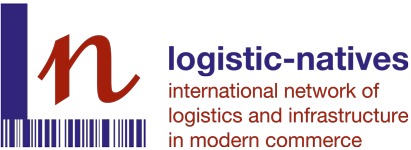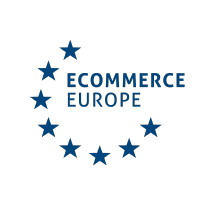
Brussels, 2 June 2022
Re: Urgent request to take into account the nature of a service for VLOPs determination in the DSA and to provide clarity on implementation timeline
Dear Mr. de Graaf,
Dear Mr. Agarwal,
We are writing to you in light of the finalisation of the Digital Services Act (DSA). Ecommerce Europe welcomes the agreement that has been reached and believes it will help reduce illegal content online and make the internet safer and more transparent. However, we remain concerned about the proposed definition of an ‘active recipient of the service’ and the suggested timeline for the implementation of the rules for Very Large Online Platforms (VLOPs).
The definition of active recipients is crucial for the DSA’s chapter on systemic risk management, in which specific obligations are introduced for VLOPs. Online platforms that reach a number of average monthly active recipients of the service of at least 45 million, can be designated as VLOPs. Recital 54 states that recipients of an online platform are those that engage with a service by clicking on, commenting, linking, sharing, purchasing or carrying out transactions on an online platform. Ecommerce Europe strongly supports that Recital 54 recognises that the determination of the number of active recipients can be impacted by market and technical developments. We welcome that the Commission “should be empowered to supplement the provisions of this Regulation by adopting delegating acts laying down the methodology to determine the active recipients of an online platform or search engine, where necessary, reflecting the nature of the service and the way recipients of the service interact with it.”
We are pleased with the reference to the need to potentially reflect the nature of the service and interaction as we believe the current definition is not appropriate to capture the ‘recipients’ of an e-commerce marketplace. E-commerce companies differentiate between ‘unique visitors’, individuals browsing through the website or app, and ‘active users’, referring to those users that have completed a transaction. This differentiation is important because in e-commerce, the number of visitors, who are merely window-shopping, is always much higher than the number of customers. If these market specifics are not taken into account, the consequence is that more transactional platforms will fall within the scope.
Additionally, we believe that an implementation period of “4 months from designation” is too short and leads to uncertainty if it comes into force earlier than the rest of the DSA, as it is likely that services will not be able to meet the implementation timeframe. It also remains unclear whether the intention is for this timing to be 6 months (to establish an average user figure) plus 3 months (to publish the figures) plus 4 months (from designation). Equally, it would create significant uncertainty if the Commission were to take the view that they could designate players without waiting for them to publish their first figures, further shortening the time for some services to implement some of the strictest obligations of the DSA. We strongly encourage the Commission to relieve significant uncertainty, whilst still achieving its stated position of applying the DSA to VLOPs earlier than to other services, by stating a date before which they will not designate VLOPs. We urge the Commission to prioritise and facilitate compliance by allowing businesses sufficient time to hire and train or retrain staff, redesign and implement new procedures, plan and execute technical changes in systems and deliver a stable and secure service for European consumers and sellers that will otherwise face unnecessary restrictions in their buying choices and their ability to reach customers at a time of already disrupted supply chains.
Finally, we are also concerned that for sellers and consumers using the services of VLOPs, the processes will not be in place on time within all Member States. This will create confusion, frustration and an unlevel playing field across the union. For example, Digital Service Coordinators may not have been established yet, or Alternative Dispute Resolution services to resolve disputes regarding notices may not yet be appointed. For sellers who have their offers removed or who believe that goods unfairly competing with them have not been removed, this is an important local service that already creates confusion with the P2B regulation, which is still not, or differently, implemented in some Member States.
To avoid placing a disproportionate burden on e-commerce marketplaces by considering them to be VLOPs based on the number of mere visitors, we call on the Commission to make use of the possibility to use delegated acts to tailor the definition of recipients to the service offered by an intermediary, taking in account the specifics of the different business models. Additionally, we stress the importance of allowing sufficient time to prepare for the designation.
We kindly request a meeting with you to further discuss and elaborate on our concerns.
We hope that you will take our suggestions into consideration, and we remain available for any questions you may have.
Thank you very much in advance for your consideration
Yours faithfully,

Luca Cassetti
Secretary General of Ecommerce Europe
Here you can download the Position Paper (PDF)
About Ecommerce Europe
Ecommerce Europe is the sole voice of the European Digital Commerce sector. As a result of joining forces with EMOTA, Ecommerce Europe now represents, via its 23 national associations, more than 100,000 companies selling goods and services online to consumers in Europe. Ecommerce Europe acts at European level to help legislators create a better framework for online merchants, so that their sales can grow further.
Website: www.ecommerce-europe.eu
Ecommerce Europe
Brussels Office
Rue d’Arlon 69-71
B-1040 Brussels (Belgium)
Tel.: +32 (0) 2 502 31 34
Monday-Friday 9:00 – 18:00 hrs (GMT+1)
Email: info@ecommerce-europe.eu

